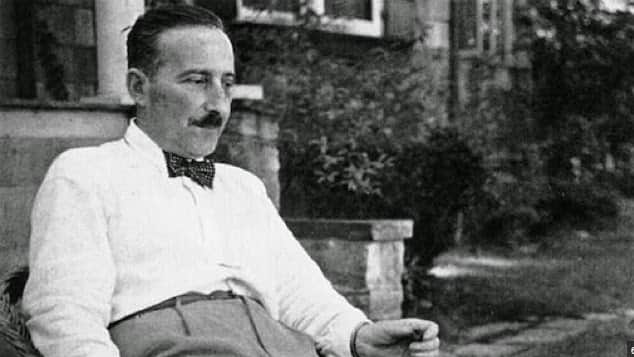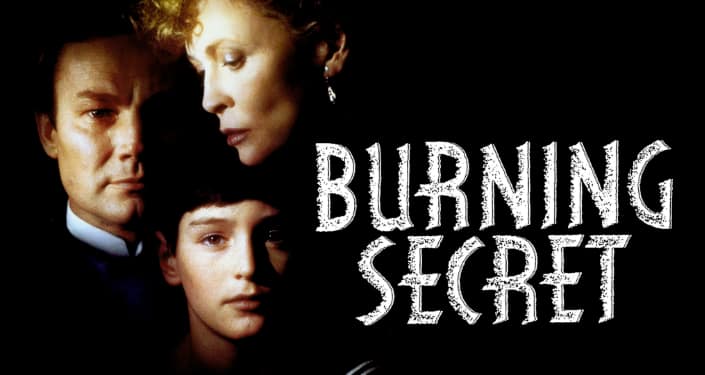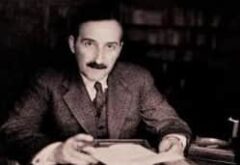Contents
For those who love the world’s modern classics, today we will try to reach the deepest depths of a heart with the sharp scalpel of Stefan Zweig, the master surgeon of the human soul. There are some stories that do not tell of great wars or epic adventures; instead, they focus on the greatest and most devastating tragedies experienced in silence in a living room, at a dinner table. “The Collapse of a Heart” is exactly such a work. In this short but equally enormous novella, Zweig reveals with the meticulousness of an autopsy how an authoritarian, distant father is silently shattered by the betrayal of his family. In this style, it contains traces of Notes from the Underground.
At the center of the story is the love and devotion that a retired civil servant, a former governor, feels for his daughter. However, this love gradually turns into a fragile dependency and then into a devastating disappointment. While devoting his life to his daughter, the governor begins to experience a heavy loneliness in the face of her changing values and indifference. While Zweig conveys this internal fragmentation with a calm but sharp language, he shows the reader how love can bring both meaning and destruction to a person.
Zweig’s success in creating characters allows the reader to identify with this old man. The spiritual collapse of an introverted man, cut off from the outside world, is woven with small details before it turns into a great tragedy. In the story, it is not the conflicts that raise their voices; there are suppressed emotions, silent complaints and deep internal conflicts. This is one of the basic elements that increase the impressiveness of the work.

In this article, we will peel back the layers of that shocking story, witness the storms in the inner world of a man who seemingly has everything, and discover together how lack of communication can drag a family into disaster.
Subject and Events: The Noisy Collapse of the Silent Heart
The Collapse of a Heart is told by the daughter of the family who remembers the events with regret and sadness years later. The narrative begins on her father’s 65th birthday. The father is a “patriarch” figure who is respected and even a little feared by his family, rich, successful but also secretive and never shows his feelings. He has devoted his life to his work, has provided his family with all kinds of financial means but has not been able to establish a loving and warm relationship with them. His family sees him as a machine that only makes money, an unemotional authority.
However, beneath this appearance of respect and order lies a secret betrayal that has been going on for years. The mother and children (our narrator and her brother), who are fed up with their father’s emotional distance and what they see as his stingy attitude, have been stealing money from his safe at work for years. They finance their own luxury expenses, small pleasures and “the share they cannot get from life” in this way. They do not legitimize this situation as theft, but as a way of compensating for the love and attention their father did not give them with money and taking what is rightfully theirs. This is important in The Collapse of a Heart novel.
On that 65th birthday, that seemingly perfect order is suddenly shaken. His father accidentally learns about this secret situation, how his family has been deceiving him for years, through a letter from his brother abroad. That moment is a moment of destruction for him. He realizes that everything he has built throughout his life, that wall of control and trust, has suddenly shattered into pieces. Zweig describes this moment of discovery so masterfully that we, as readers, feel the full weight of that moment on our shoulders along with the character in the novel of The Collapse of a Heart.

Indifference, Revenge and a Trip to Italy
Revenge is important for The Collapse of a Heart novel. However, the father’s reaction is not as his family expected. He does not shout, call, or demand an explanation. On the contrary, he sinks into an even deeper, more frightening silence. He acts as if nothing has happened. His family interprets this silence as his “usual indifference” and breathes a sigh of relief, thinking that he has not noticed the situation. However, this silence is not indifference, but an expression of his heart and soul being torn apart, of the point where words have run out. This misunderstanding deepens the tragedy even further. This is also a depth that makes the novel The Collapse of a Heart valuable.
Immediately after this incident, the father suddenly announces that he will go on a trip to Italy alone. The family sees this as their father’s desire to get away from stress and even rejoices. However, this trip is actually an escape; an escape from his own pain, his family, and his collapsing world… He wanders aimlessly through the crowded streets of Italy, his health gradually deteriorates, and one day, he has the great crisis that stops his heart both literally and figuratively. This is the climax of his physical and mental collapse.
In The Collapse of a Heart novel, the father, who returns from the journey as a wreck, is no longer the strong man he once was. While he is bedridden and exhausted, his secret is revealed. The family understands that their father has known everything from the beginning, that his silence is not a result of ignorance but of deep grief. The cause of his collapse is not work stress or fatigue, but the betrayal of his loved ones. That final moment when the narrator girl realizes her father’s silent pain and her own blindness leaves a lump in the reader’s throat. The story ends with an irreversible feeling of regret and guilt.

The Collapse of a Heart Characters: Invisible “Father”
Stefan Zweig, in his novel The Collapse of a Heart, draws a tragic human type of the modern world through the character of the “father”, whose name he does not even give us. When viewed from the outside, he has everything: money, success, prestige, a family… However, under this shiny surface, he is an “invisible” man who no one sees, cannot see or wants to see, who lives a terrible loneliness and emotional misery. For his family, he is not a person, but an institution; the pillar of the house, the source of money…
The most distinctive feature of the father is that he has built his life on a strict routine and discipline. He wakes up at the same time every morning, goes to work at the same time, and sits silently with his family at dinner. This routine is a security shield for him. He escapes from the complicated world of emotions and uncertainties and takes refuge in the only area he can control, namely his work and the clarity of numbers. However, the moment he learns of his family’s betrayal, this shield of control shatters and leaves him defenseless. This is one of the painful moments of The Collapse of a Heart.
The biggest problem underlying his tragedy is his inability to communicate. He tries to show his love and devotion to his family by working tirelessly for them and providing them with every financial opportunity. In his language, love means “responsibility.” However, his family, especially his wife, expects a warm word, a display of affection, and an emotional sharing from him. The gap between these two different love languages is the source of all the disaster. The father does not know how to show his love, and his family does not know how to receive his love.

The Father’s Inner World and Inability to Confront!
The pain he feels when he learns of the betrayal is much deeper than money. According to The Collapse of a Heart novel, money is just a tool for him; what really matters is that the safe and orderly world he has built for them throughout his life is being disregarded by those he loves the most. This is not just a theft, it is an attack on his entire existence, his entire purpose in life. At that moment, he understands that in the eyes of his family, he is not a husband or a father, but merely a safe to be robbed.
This existential wound severs his entire connection to life. In this context, the concept of family is also critically discussed in the book A Collapse Story.
Choosing not to confront his family is the most complex aspect of his character. Is this pride? Yes, because admitting his weakness and hurt is against his nature. Is this a kind of punishment? Maybe… He may have thought that leaving them alone with their own consciences would be a more severe punishment than shouting and screaming. But at its most basic, this is a deep desperation and giving up, where words run out, where the pain and disappointment are too great to express.
His journey to Italy is not a transformation but a disintegration in The Collapse of a Heart book. The powerful, controlling man is gone; in his place comes a lost, tired, and sick man. His physical collapse is a reflection of his spiritual collapse. He is no longer the head of his family, but a tragic figure who has become their victim, whose heart is broken both figuratively and literally. Through this character, Zweig masterfully shows how fragile the inner worlds of people who appear strong on the outside can be.

Why Should Read “The Collapse of a Heart”?
Stefan Zweig’s novel The Collapse of a Heart goes far beyond simply telling the drama of a family, touching on universal and timeless themes about the human condition. The book examines the invisible walls within the family, the destructive power of miscommunication, and the tragedy of modern man. That’s why, despite almost a century having passed, it continues to touch the hearts of everyone who reads it.
The most central theme in The Collapse of a Heart is undoubtedly the tragedy of miscommunication. People living under the same roof, eating at the same table, are actually miles away from each other. Everyone assumes what the other person feels and thinks, but no one really tries to talk or understand. The huge gap between the way a father shows his love and the family’s expectation of love is the most painful summary of this miscommunication. Zweig shows us that the existence of love is useless unless it is communicated correctly.
With this story, Zweig also destroys the myth of the sacred family. Inside the bourgeois family, which appears respectable, wealthy and happy from the outside, there are actually hidden hatreds, selfish desires, disappointments and deep alienation. Far from being a home of love, the family has become a battlefield where each individual silently struggles for his own interests and satisfactions. This is a very disturbing but also very realistic portrait.
